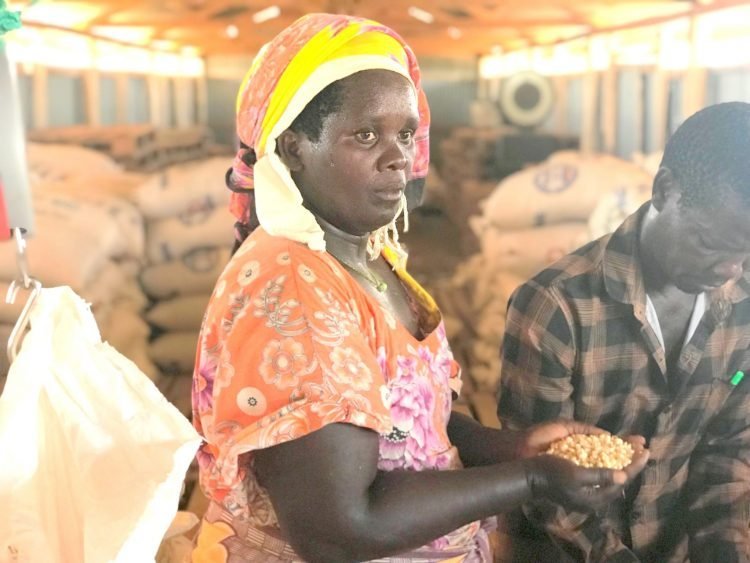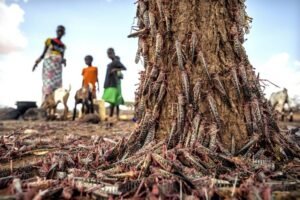By Verenardo Meeme, Rootooba, 23 July 2020
The Meru County Government has partnered with scientists from the University of Nairobi and Texas A&M University to advance aflatoxin testing capacity to detect toxins in human food and animal feed.
Through induction of trained public health personnel to work in the County Laboratory and Research Centre, the experts will collect cereals data as aflatoxin contamination soars in the county.
Aflatoxins are highly poisonous and carcinogenic compounds produced mainly by the strains of Aspergillus flavus and Aspergillus parasiticus and related species on a suitable substrate.
According to John Inanga, the Director for Public Health in Meru County, so far, 11 public health officers have been inducted to work in all the nine sub-counties. The team’s mandate is to build research capacity and present laboratory results and reports on aflatoxin levels in mills to government agencies and other stakeholders.
‘’The research team will collect data to ascertain if aflatoxin is in cereals. In addition, other crop practices that hold potential to spread the poison will be assessed to inform policy on food safety and resource allocation towards mitigating the challenge,’’ Inanga told Rootooba.
“This will assist Meru County Assembly in understating more about aflatoxin status and help build the capacity of the county assembly members to pass crucial bills on aflatoxin risk management, thereby saving lives and enhancing food security,” Inanga adds.
Recently, millers have raised concerns about maize contamination with aflatoxins threatening food security and presenting unique income loss by growers.
“Meru County has destroyed over 14,000 bags of maize due to aflatoxin contamination. The facility will help residents cut transportation costs to take their mills samples to Nairobi for testing. We now have a functioning laboratory that will also serve the larger Mt Kenya region,” says Ephantus Kariuki, a food safety expert.
According to the Chairman of the Agriculture Committee in the Meru County Assembly, Hon. Paul Bagine, the county government executive needs to fast track the development of the legal framework already at the executive stage to help mitigate the challenge.
“When the bill comes to the assembly, we will take it to public participation and make it a policy to be used to set laws that will help fight aflatoxin,” he said.
Farmers have also been counting losses over the years due to the aflatoxins. According to Lucy Kaari, a maize farmer in Meru County, aflatoxin contamination has led to a considerable decline in demand for maize. Kaari says she had abandoned maize farming because it was becoming unprofitable as buyers rejected her maize due to high levels of aflatoxin.
‘‘I recall when the Government issued a warning that our maize contained aflatoxin. I got confused, and I did not know what to farm next. There was a considerable decline in demand for maize,” Kaari says.
Dr. Joel Ochieng, the Programme Leader for Agricultural Biotechnology at the University of Nairobi, says exposure to higher levels of aflatoxin has been shown to cause cancer in humans and animals.
“Aflatoxin B1 is associated with hepatocellular, kidney and liver carcinomas. Further, studies have linked aflatoxins to problems with reproductive hormones, especially in females, a potential origin of cancer and often compromising the immune system,” says Mr Ochieng.







